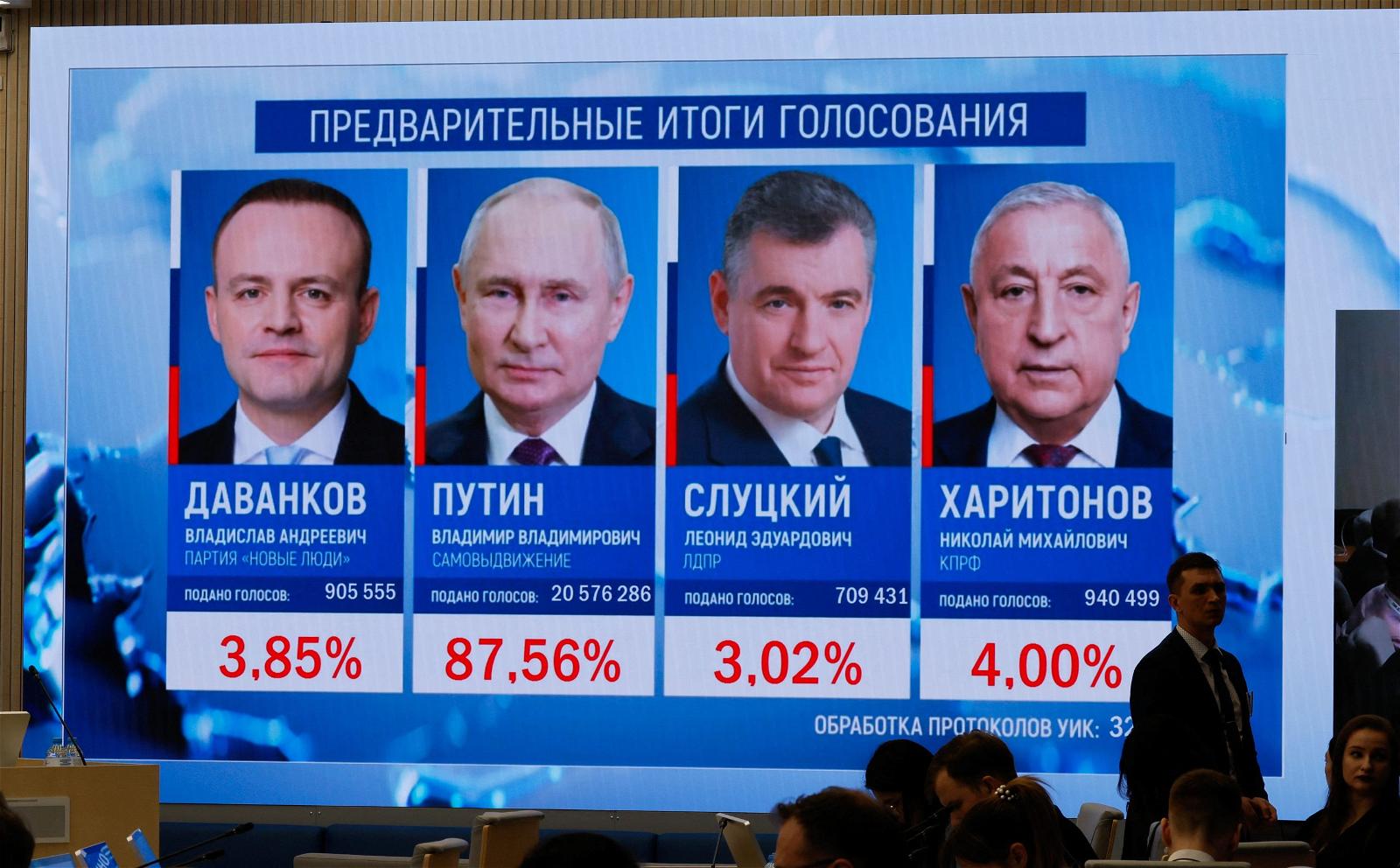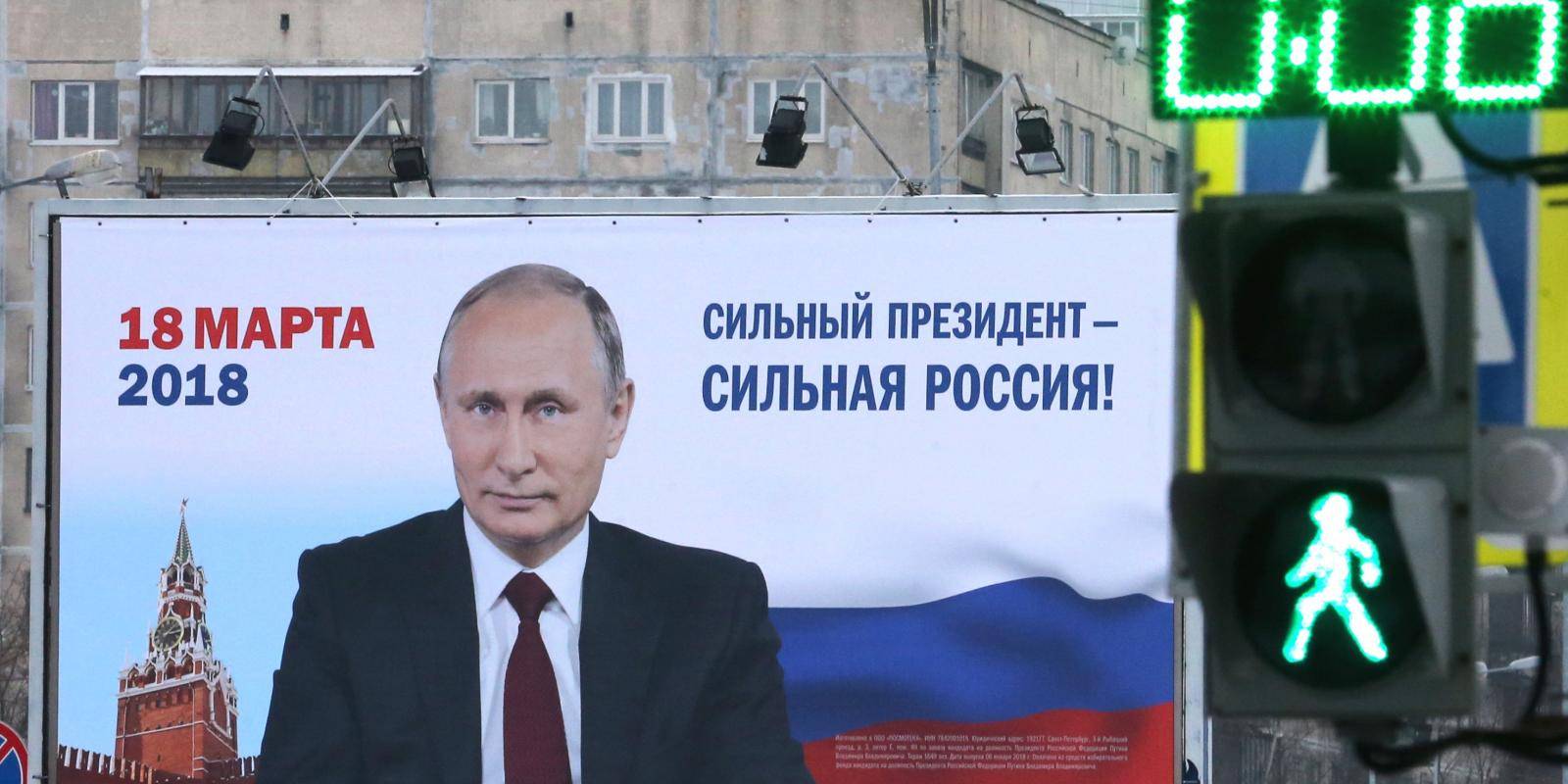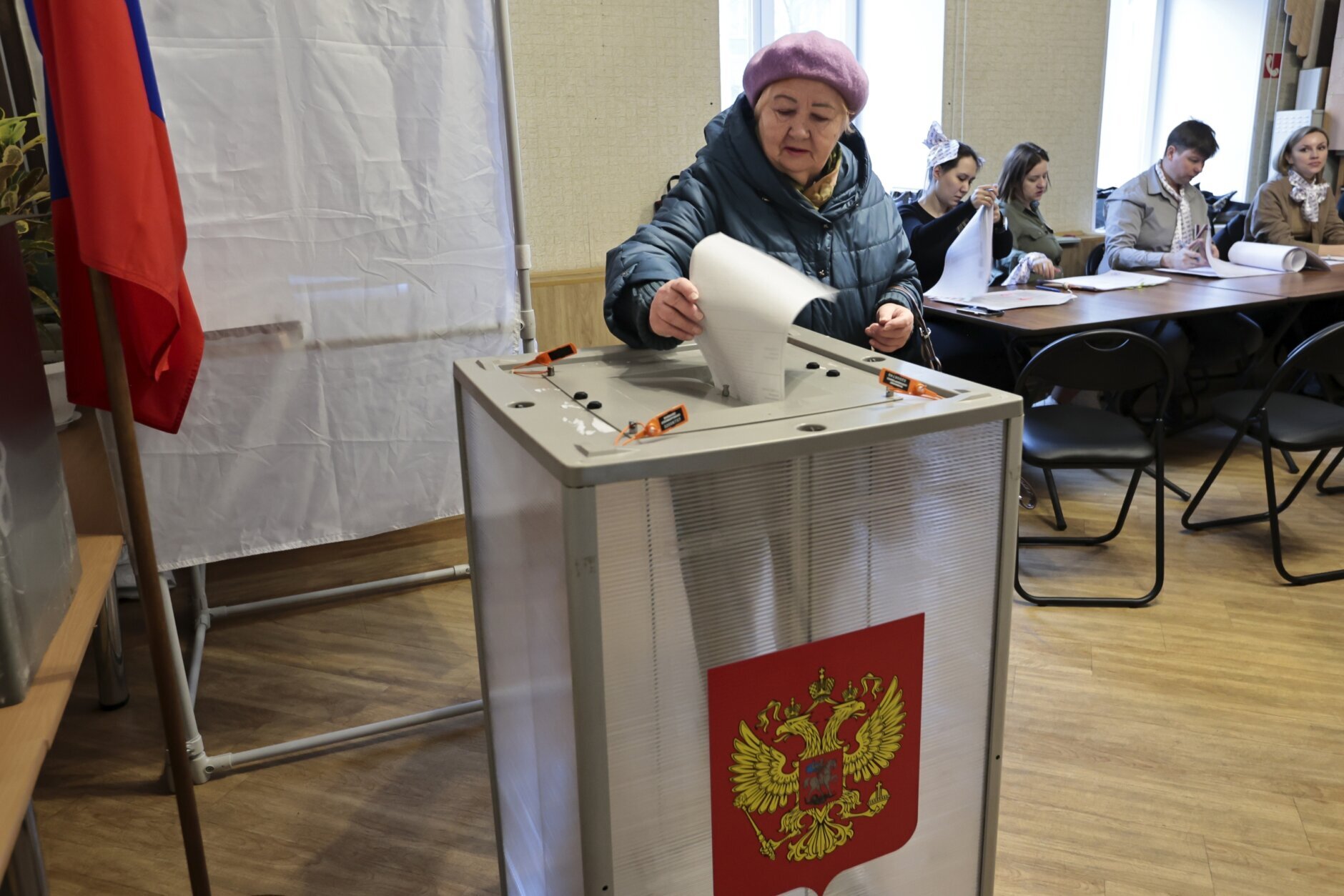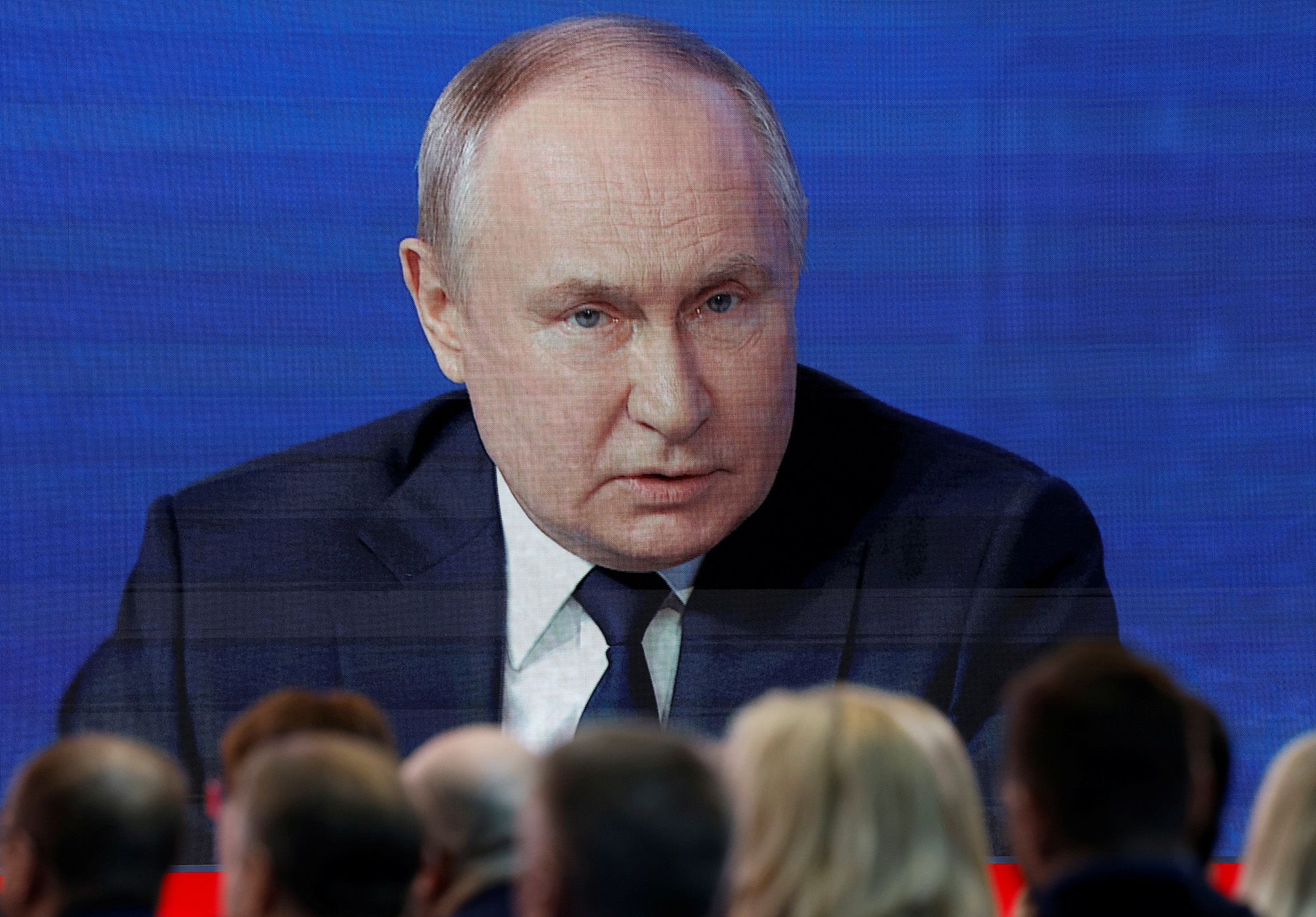Putin Claims Landslide Victory In Election Widely Criticised As Undemocratic; Putin’s Fifth Term, Democracy or Deception?
Russian President Vladimir Putin has once again emerged as a winner in the nation's electoral process, clinching a landslide victory that has reignited debates over the legitimacy of the democratic process under his rule. Despite international condemnation and allegations of electoral malpractice, Putin's resounding win is an example of his lasting influence and signals a continuation of his formidable leadership in Russia's politics. Hence, despite claims of overwhelming support, questions remain regarding the fairness of the electoral process and the stifling of opposition voices. As Putin firms his grip on power, both domestic and international observers are crying foul over the state of democracy under his rule.

In what seemed like an obvious conclusion, Vladimir Putin has secured his fifth term as Russia’s president, supposedly with an overwhelming mandate – again solidifying his hold on power in what he touted as a resounding election triumph, despite widespread criticism for its lack of democratic integrity.
In a post-election address, Putin framed the outcome as validation for his defiance against the West, particularly regarding the invasion of Ukraine.
“No matter the attempts to intimidate or suppress us, our will and consciousness have never been swayed throughout history,” Putin asserted triumphantly, following the announcement of his victory early Monday.
Initial returns, released shortly after polls closed, affirmed the anticipated outcome: Putin extending his reign for another six years, securing approximately 87 percent of the vote with 60 percent of precincts tallied.
This victory propels Putin, 71, to surpass Joseph Stalin as Russia’s longest-serving leader in over two centuries.
The competition trailed far behind, with Communist candidate Nikolay Kharitonov claiming second place with under 4 percent, while political newcomer Vladislav Davankov and ultra-nationalist Leonid Slutsky followed suit.

Despite assertions of high voter turnout, reaching 74.22 per cent, sceptics argue that Putin’s victory was all but assured, with critics noting the absence of viable opposition, with dissenters either imprisoned, exiled, or deceased.
Alexey Navalny, Putin’s most prominent rival, met his demise in an Arctic prison just weeks prior.
For Putin, a former KGB operative who ascended to power in 1999, this victory is evidence of Russia’s enduring influence, challenging Western powers to acknowledge its resilience on the global stage.
The response from the international community has been resounding.
The United States denounced the election as neither free nor fair, citing Putin’s suppression of political opponents and manipulation of the electoral process.
Similarly, the United Kingdom‘s Foreign Secretary David Cameron criticised the vote, asserting that it fell short of the standards for free and fair elections.
Ukrainian President Volodymyr Zelenskyy echoed these sentiments, dismissing the election as fraudulent and lacking legitimacy, particularly in the wake of Russia’s invasion of Ukraine in 2022.
With growing dissent, thousands of Putin’s opponents rallied in protest, though an independent estimate of participation remains elusive. Supporters of Navalny called for nationwide demonstrations under the banner “Noon against Putin.”
In a surprising revelation during his post-election press conference, Putin acknowledged discussions regarding Navalny’s release in exchange for Western-held prisoners, marking the first time he openly addressed the deceased opposition figure since his passing.
Putin’s ascent to power has been characterised by strategic manoeuvring between the presidency and prime ministership, circumventing constitutional term limits to maintain his grip on authority.

Putin’s Fifth Term; Democracy or Deception?
Vladimir Putin securing his fifth term as Russia’s president, purportedly with an overwhelming mandate; however with accusations of electoral manipulation and stifled opposition, questions arise regarding the true nature of Russia’s democracy.
Putin’s landslide victory, with more than 87% of the vote according to election officials, prompted the Russian leader to assert the transparency of Russia’s electoral process compared to Western counterparts.
Yet, critics argue that no credible opposition candidates were permitted to challenge Putin’s dominance, rendering the election a mere facade of democracy.
Ukrainian President Volodymyr Zelensky minced no words in denouncing the election as a sham, labeling Putin a “dictator” orchestrating another charade of democracy.
Navalny ally Leonid Volkov, despite suffering violence in exile, dismissed the reported figures for Putin’s victory as detached from reality.
Reports of irregularities surfaced, with allegations of coercion and intimidation in polling stations, particularly in Russian-occupied areas of Ukraine.

Despite such controversies, state-controlled media celebrated Putin’s triumph as an evidence to his unwavering support and a message to Western adversaries.
While Putin touted Russia’s technological prowess, citing the use of online voting, critics pointed to flaws and inconsistencies, including pressure on public sector employees to participate.
The absence of independent watchdogs further raises doubts about the fairness of the electoral process.
Protest voters, including Navalny’s widow Yulia Navalnaya, voiced defiance against the regime, queuing for hours to cast symbolic ballots.
Despite knowing their votes wouldn’t sway official results, their solidarity served as a stark reminder of dissent in the face of authoritarianism.
Activist and attorney Lyubov Sobol, speaking from Washington DC, emphasised that while protest votes may not sway the Kremlin’s official results, their symbolic significance remains crucial.
Russia’s presidential election, from the outset, lacked fairness. The Kremlin exercises tight control over the political apparatus, media outlets, and electoral procedures.
Nikolai Kharitonov, the Communist Party candidate, garnered just over 4% of the vote, with other contenders faring even worse.
None of these candidates posed a serious challenge, with Kharitonov even expressing admiration for President Putin’s efforts to unite the nation ahead of the election.

Millions of Russians cast their votes for Putin’s fifth term, primarily due to the absence of viable alternatives, orchestrated by the Kremlin’s elimination of potential rivals from the political sphere. Opposition figures have either faced imprisonment, sought refuge in exile, or met untimely ends.
Initially, there was speculation surrounding the candidacy of Boris Nadezhdin, an anti-war politician. However, he was disqualified by the election commission last month, as public support for his platform grew.
Supporters of the late Putin critic Alexei Navalny staged symbolic protests, including the “Noon against Putin” initiative, drawing long queues of voters in cities like Moscow and St. Petersburg, as well as outside embassies abroad. However, these demonstrations were unlikely to influence the election outcome.
According to monitoring group OVD-Info, at least 80 Russians were arrested during the election period, though there were no reports of the sporadic attacks witnessed at some polling stations earlier.

The Viewpoint
Russia’s presidential election spotlights the extreme control of the Kremlin over the political arena.
With Putin poised to extend his rule until at least 2030, the facade of democracy in Russia appears increasingly fragile, raising concerns both domestically and abroad.
Despite claims of transparency and legitimacy from the Kremlin, the reality on the ground paints a different picture.
The election process was marred by the absence of credible opposition candidates and reports of electoral irregularities, signaling a lack of genuine political competition.
The dominance of Vladimir Putin, who has been in power since 2000, raises concerns about the consolidation of authority and the stifling of dissenting voices.
The tight control exerted by the Kremlin over the political system, media, and electoral process undermines the principles of democracy and fosters an environment of political stagnation.
The disqualification of potential challengers and the suppression of opposition figures demonstrate a systematic effort to maintain Putin’s grip on power at the expense of democratic norms. This consolidation of power not only hampers political pluralism but also erodes public trust in the electoral process.
The symbolic protests staged by supporters of Alexei Navalny highlight the yearning for change among certain segments of the population. However, without genuine avenues for political participation and meaningful electoral competition, these protests show the limitations faced by those seeking to challenge the status quo.
From an international perspective, the condemnation of the election by Western countries indicates the widespread concerns regarding the erosion of democratic values and human rights in Russia.
The characterization of the election as neither free nor fair reflects the consensus among democratically-minded nations that genuine democratic processes were not upheld.
The Last Bit, Hence, the recent presidential election in Russia stresses the need for meaningful democratic reforms to ensure genuine political competition, safeguard fundamental rights, and restore public trust in the electoral process.
For, without such reforms, Russia risks further entrenching authoritarian tendencies at the expense of democracy and pluralism while the West cries foul.




